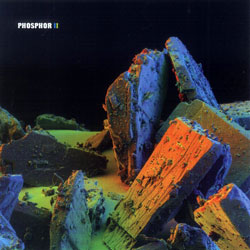
Electro-acoustic improv from the Phosphor grouping, an amazing set of musicians who began working together in 2001 and have developed a complex and incredible form of interplay.
In Stock
Quantity in Basket: None
Log In to use our Wish List
Shipping Weight: 5.00 units
EU & UK Customers:
Discogs.com can handle your VAT payments
So please order through Discogs
Sample The Album:
Burkhard Beins-percussion, objects, small electrics
Axel Dorner-trumpet, electronics
Robin Hayward-tuba
Annette Krebs-guitar, objects, electronics, tape
Andrea Neumann-inside piano, mixing board
Michael Renkel-prepared nylon string acoustic guitar via computer
Ignaz Schick-turntable, objects, bows
Click an artist name above to see in-stock items for that artist.
UPC: 3491570000922
Label: Potlatch
Catalog ID: P109
Squidco Product Code: 12234
Format: CD
Condition: New
Released: 2009
Country: France
Packaging: Jewel tray, not sealed.
Recorded at Tesla, Berlin, September 27-29, 2006.
"My abiding memory of Phosphor in concert at the Instants Chavirés outside Paris in May 2002 is the image of the musicians huddled together afterwards in earnest post-gig post mortem. Less-is-more Improv was a serious business, and the eight members of the Berlin based collective - Burkhard Beins (percussion/zither), Alessandro Bosetti (saxophone), Axel Dorner (trumpet/electronics), Robin Hayward (tuba), Annette Krebs (guitar/tapes), Andrea Neumann (inside piano/mixing board), Michael Renkel (guitar/computer) and Ignaz Schick (turntable) - were its leading exponents back then. Seven years later, this follow-up to Phosphor's 2001 debut is a good opportunity to assess how the same musicians - without Bosetti, who has since left Berlin - have evolved in the intervening years.
While some improvisors of the Malfatti/Sugimoto persuasion have continued down the quiet path, playing even less and allowing silence to play an ever greater role, Phosphor - the group, rather than the individual musicians playing solo - have opted to play more, using a wider range of sounds, all the while miraculously retaining the leisurely pace and textural clarity of their earlier music. The only thing austere and minimal about these six tracks is the generic album and track titling; the music is as colourful and crystalline as the photograph that adorns the cover (not phosphorus, but ascorbic acid). Barely a minute into P7, Renkel's nylon string guitar is scribbling all over a sonic space bustling with activity. Dorner's pitchless machine gun splatter, Hayward's rubbery flapping, Krebs's scrumpled steel wool and the hiss of Beins's drums swept by polystyrene blocks are all instantly recognisable, but there's a real sense of teamwork here, a rare and welcome example of seven improvisors playing together without trampling each other to death. The pacing and precision is impeccable; this is music making of the highest order, marking not a break with but an extension of a rich tradition of European free improvisation."-Dan Warburton
Artist Biographies
• Show Bio for Burkhard Beins "Burkhard Beins, born 1964 in Lower Saxony, lives in Berlin since 1995. As a composer/performer working in the fields of experimental music and sound art he is known for his definitive use of percussion in combination with selected sound objects. Furthermore, he works with live-electronics/analog synthesizers and has conceived several sound installations. Since the late 1980's he is performing at internationally renowned venues and festivals throughout Europe, America, Australia and Asia as diverse as the LMC Festival (London), Int. Ferienkurse (Darmstadt), SKIF (St. Petersburg), Musiktage (Donaueschingen), Musique Action (Nancy), Choppa Festival (Singapore), Cave 12 (Geneva), The Now now (Sydney), ZKM (Karlsruhe), Kaleidophon (Ulrichsberg), Kid Ailack Music Hall (Tokyo), Gaudeamus Festival (Amsterdam), Liquid Architecture (Australia), Meteo (Mulhouse), Taktlos (CH), Berghain (Berlin), Konfrontationen (Nickelsdorf), Serralves (Porto), Wien Modern (Vienna), MoMA (New York), New Music Festival (Hanoi), Irtijal (Beirut), or Maerzmusik (Berlin). Alongside his solo work he is a member of the ensembles Polwechsel, Activity Center, The Sealed Knot, Perlonex, Sawt Out, Trio Sowari, Tree, Junk Orbit, Fracture Mechanics, and Splitter Orchester and also works with composers/musicans such as Sven-Åke Johansson, Andrea Neumann, Keith Rowe, Axel Dörner, Tarek Atoui, John Tilbury, or Charlemagne Palestine. Burkhard Beins gives workshops based on his graphic score system Adapt/Oppose, has published several articles on music theory, and is a co-editor of the book "Echtzeitmusik Berlin - Self-Defining a Scene" as well as the curator of a follow-up 3CD compilation featuring the Berlin Echtzeitmusik scene. Meanwhile he has released more than 50 CDs and LPs on labels like Zarek, Erstwhile, 2:13 Music, Hat Hut, Potlatch, Absinth, alt.vinyl, God Records, Mikroton, or Confront." ^ Hide Bio for Burkhard Beins • Show Bio for Axel Dorner "Axel Dörner (born 26 April 1964 in Cologne, Germany) is a German jazz musician (trumpet and piano) and composer. Dörner studied piano in the Dutch town Arnhem (1988-89) and at the Music Academy in Cologne (1989-1996). From 1991 he studied trumpet with Malte Burba, and during his studies he collaborated with trumpeter Bruno Light in the "The Street Fighters Duo". At this time he also joined the ensembles "The Street Fighters Quartet" and "The Street Fighters Double Quartet" together with Matthias Schubert, Bruno Leicht, and Claudio Puntin. In addition the "Axel Dörner Quartet" was initiated (with Frank Gratkowski, Hans Schneider and Martin Blume). With saxophonist Matthias Petzold. he participated on the albums Lifelines and Psalmen Und Lobgesänge. Dörner has resided in Berlin since 1994, and occurs in the most diverse settings like "The London Jazz Composers Orchestra" and with "Hedros" (together with Mats Gustafsson, Günter Christmann, Barry Guy and others). Since then he has contributed on more than 50 album recordings. Dörner is distinguished mainly by his versatility. He bouth play the more traditional Bebop, just like he fits in to classic Free Jazz or electronic music. He playd with Otomo Yoshihide at the Donaueschinger Musiktage in 2005. Dörner play both solo concerts and collaborates with his trio "TOOT" (together with Phil Minton and Thomas Lehn) and "Die Anreicherung" with Christian Lillinger, Håvard Wiik and Jan Roder, and in Ken Vandermarks "Territory-Band". Dörner is an integral part of the Berlin scene of experimental new improvisational music. Dörner was given special attention for his interpretation of all compositions by Thelonious Monk, with the pianist Alexander von Schlippenbach and his own band "Die Enttäuschung" released on a three CD album (Monks Casino, Complete 2005)."-Wikipedia ^ Hide Bio for Axel Dorner • Show Bio for Robin Hayward "The tuba player and composer Robin Hayward was born in Brighton, England in 1969. He studied classical music at the University of Manchester and tuba at the Royal Northern College of Music, where he graduated in 1991. In following years he was active in the improvised and experimental music scenes in Manchester and London. Since 1998 he has been based in Berlin. He has introduced revolutionary playing techniques to brass instruments, initially through the discovery of the 'noise-valve' in 1996, and later through the development of the first fully microtonal tuba in 2009. In 2012 he invented the Hayward Tuning Vine, partly out of a desire to visualise the harmonic space implicit within the microtonal tuba. In 2005 he founded the ensemble Zinc & Copper to explore brass chamber music from an experimental music perspective. Robin Hayward has toured extensively both solo and in collaboration, and been featured in such festivals as Maerzmusik, Fri Resonans, Donaueschingen, TRANSIT festival, Ghent Festival of Flanders, Ostrava New Music Days, Sound Symposium, Kieler Tage für Neue Musik and Wien Modern. Collaborations include such musicians as Charles Curtis and Roberto Fabbriciani, along with composers such as Christian Wolff, Alvin Lucier and Eliane Radigue. His approach to the tuba has been documented in the solo releases Valve Division, States of Rushing, Nouveau Saxhorn Nouveau Basse and Rubble Master, along with numerous collaborative releases, such as with the microtonal tuba trio Microtub and the tuba and double bass duo Reidemeister Move. He has lectured at such institutions as Stuttgart Musikhochschule, the Sibelius Academy in Helsinki, UDK Berlin, Dartmouth College and Wesleyan University. He has also worked regularly with such orchestras as the Rundfunk-Sinfonieorchester Berlin and the Konzerthausorchester Berlin, and from 2002 to 2012 was a member of the new music ensemble KNM Berlin. In 2012 the International Tuba and Euphonium Association (ITEA) presented him with the Clifford Bevan Award for Excellence in Research for his 2011 article on the history and development of the microtonal tuba. In 2016 he received the ITEA's Jim and Jamie Self Creative Award for his work with the microtonal tuba and Hayward Tuning Vine." ^ Hide Bio for Robin Hayward • Show Bio for Annette Krebs "... [Annette Krebs] wanted to play the guitar since she was four years old, but only eleven years later this dream came true. Her first teacher was a jazzmusician who led her more practically and gave her the basis of the most varied styles. From the beginning she made improvisational and compositional songs about the school and the things around her. At sixteen she wrote her own protestsongs, played a little rock, a little this and that. When the time for studying came, she chose classical guitar. Jazz and modern music did not interest them at first, modern art was even more so: she painted, was fascinated by Dadaism, Schwitters' Merz and others. She tried to play what she painted, to paint what she was playing. Of the fact that the other were similar, she had no idea at that time. In Frankfurt, where she at that time studied guitar, she also tried to penetrate the authentic interpretation of baroque music, discovered the European tradition and composed intensively. At the same time, however, she lured the abstraction - the pictorial as well as the musical. In her own compositions she stayed with pure tones, from which she formed her "abstract" melodies. Now Frankfurt is a very lively city, and Annette Krebs took everything that was going on around her: concerts of contemporary music, jam sessions and joint improvisations and debates with other musicians. When she finally moved to Berlin, she began to break out of the world of classical music. First, she tried to put her guitar in an informal context, playing classical repertoire in pubs, which was almost surreal, but she soon sought another The instrument was accessible to the instrument itself. She held it between the knees like a violoncello and reduced the number of strings. So she started to use the electric guitar as well. She tirelessly studied the possibilities of other forms of play, Until she finally put the guitar on the table. This had quite practical advantages: All "boxes" and the mixing console were so at hand. Similar to Keith Rowe, she developed a certain "sculptural" approach to her instrument. But the resulting distance began to disturb her with time, so she put the guitar on her knees to strengthen the immediate contact with the instrument. Although the gameplay remained basically the same, the gameplay was quite different; The instrument was so much easier to master. The range of instrumental and additional sounds stretched them in all directions - even those who see Annette Krebs play can hardly say which are from their guitar and which not. In the multicultural and musically vibrant Berlin she joined the thriving improvisation scene. Chris Dahlgren, Chris Dahlgren, Chris Dahlgren, Rhodri Davies, Jim Denley, Axel Dörner, Robin Hayward, Marcus. The list of people with whom they have collaborated is impressive: Chris Abrahams, Natasha Anderson, Alessandro Bosetti, Burkhard Beins Heike, Charlotte Hug, Sven-Ake Johansson, Christoph Kurzmann, Sachiko M, Coffee Matthews, Wade Matthews, Chico Mello, Toshimaru Nakamura, Andrea Neumann, Bhob Rainey, Taku Sugimoto, Luca Venitucci, Michael Vorfeld, Marc Wastell, Steffi Weismann, Otomo Yoshihide ... In the year 2000 the seven-head ensemble phosphorus, In which Annette Krebs on Burkhard Beins (drums), Axel Dörner (trumpet and laptop), Robin Hayward (tuba), Andrea Neumann ("Inside-Piano"), Michael Renkel (acoustic guitar, laptop) and Ignaz Schick (electronics) , Gramophone). They all combined the need for increased concentration of musical expression and the effort to achieve clarity and transparency. In place of dense sound, silence was the starting point. The sound events and phenomena were carefully positioned in the imaginary space and meticulously measured their relationships (volume, character, sound start and end, contrasts, transitions, and collisions) and precisely measured with a view to the balance of the whole. Since these sounds were generally very quiet, a wide spectrum " Outside of phosphorus, Annette often appears alone or with other musicologists. The Japanese guitarist Taku Sugimoto or the Italian saxophonist Alessandro Bossetti are close to her. For several years she appeared in the duo with Andrea Neumann, in Vienna she plays with Christoph Kurzmann and Burkhard Stangl. She also works with Sandra Becker or Steffi Weissmann on their video projects. Together with the latter, for example, she has created a funny variation on the subject of "alienation / deprivation" with the title Le vol 1-3, a parody on pop music videos, in which the two authors make a cheerful raid in the department store to the sounds of "recycling music". The music of Annette Krebs is full of opposing qualities: On the other hand, she is "ascetic" - she works with large portions of silence and delicate noises. On their CD Guitar Solo (Fringes Recordings, 2002), the first normal guitar sound can only be heard after about six minutes. On the other hand, it is very rich - it works not only with differently transformed guitar sounds, but also with laptop, radio or cassette recorder, from which, inter alia, fragments of the real world (talks, different sound environments, etc.). Annette Krebs teaches us to listen to what we have long known. Even the most common sound is re-evaluated. Her music slips smoothly into the mysterious gap between life and art that Robert Rauschenberg once spoke of. Annette Krebs is a charismatic personality that is always good for a surprise. Their game is full of unpredictable interruptions, sudden outbursts and trembling excitement." ^ Hide Bio for Annette Krebs • Show Bio for Andrea Neumann "Born 1968 in Freiburg, grew up in Hamburg. Piano lessons since 1974. Studied piano at "Hochschule der Kunste" in Berlin. Since 1996 primarily active as improviser and composer in the areas of experimental and new music. In the process of exploring the piano for new sound possibilities, she has reduced the instrument to strings, resonance board and metal frame. With the help of electronics to manipulate and amplify the sounds (sometimes to make parts of the sound audible which are inaudible without amplification), she has developed numerous new playing techniques, sounds, and ways of preparing the dismantled instrument. Because the original inside piano is very heavy, a piano builder (Bernd Bittmann, Berlin) constructed a new and lighter one for her. She has worked intensively in the crossover area between composition and improvisation, and in the field between electronic and handmade sounds, with Berlin musicians such as Annette Krebs, Ignaz Schick, Axel Dörner, Robin Hayward and Burkhard Beins. She has composed for inside piano for interdisciplinary projects including film, dance, performance, etc." ^ Hide Bio for Andrea Neumann • Show Bio for Michael Renkel "Born 1972 in north Germany he is based in Berlin since 1996. Renkel studied classical guitar in Hamburg. The main emphasis of his work is an interest in open methods of composition, improvisation and live electronics. His guitar playing straddles tradition and the development of a personal language that includes extended playing techniques, performance and the preparation of the acoustic guitar. In a logical continuation he also extends the instrument via computer technology and he's the first classical guitarist who connected the instrument in realtime-live processing to the computer. The acoustc guitar is modified in a way that blurs the delineation between acoustic preparation and electronic variance.In his works the instrumental material is altered in realtime using preparations, synthesizers, percussion instruments, toys, sequencers, and a vibraphone, the further development of this setup is his self-constructed amplified stringboard.Renkel also works with field recordings and composes works that experiment with genetic processes via generation, mutation, hybridization and coding also video animated compositions in which the performers interpret a permanently changing score in a live situation. Recently he has been intensively involved with jazz guitar, harmony theory and its implementation in his own concepts and projects." ^ Hide Bio for Michael Renkel • Show Bio for Ignaz Schick "Ignaz Schick is a Turntablist, sound artist, performer and composer. He was born in Bavaria and since the late 1995 he works and lives in Berlin where he became an active and integral force of the so-called "Berlin Nouvelle Vague" and the blossoming "real time music" scene. He has collaborated with numerous international artists (most notably Don Cherry & Charlemagne Palestine) and toured and performed in clubs & festivals all over Eastern- and Western Europe, Australia, Finland, Israel, Malaysia, New Zealand and USA. He released many albums on several labels and he was part of radio broadcasts and productions for ORF-Kunstradio, ORF-Zeitton, BR2, DLR, DLF, WDR3, DRS2 or Radio Copernicus. Furthermore he has been curating festivals of experimental music from the early 90s onwards (FAM, Erase & Reset, Tim Shifts, The International Turntable Orchestra...)." ^ Hide Bio for Ignaz Schick
1/26/2026
Have a better biography or biography source? Please Contact Us so that we can update this biography.
1/26/2026
Have a better biography or biography source? Please Contact Us so that we can update this biography.
1/26/2026
Have a better biography or biography source? Please Contact Us so that we can update this biography.
1/26/2026
Have a better biography or biography source? Please Contact Us so that we can update this biography.
1/26/2026
Have a better biography or biography source? Please Contact Us so that we can update this biography.
1/26/2026
Have a better biography or biography source? Please Contact Us so that we can update this biography.
1/26/2026
Have a better biography or biography source? Please Contact Us so that we can update this biography.
Track Listing:
1. P7 8:49
2. P8 12:07
3. P9 8:32
4. P10 13:28
5. P11 13:58
6. P12 8:06
Improvised Music
Electro-Acoustic
Electro-Acoustic Improv
Free Improvisation
Turntablists
Septet recordings
Objects and Home-made Instruments
Instruments with Preparations
Search for other titles on the label:
Potlatch.


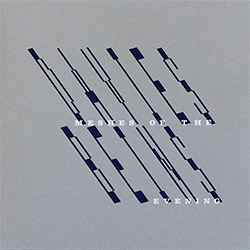



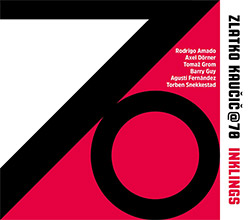
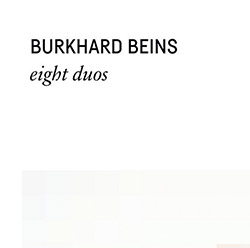

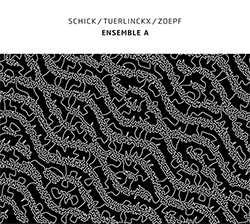
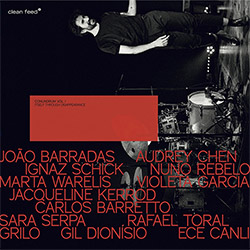

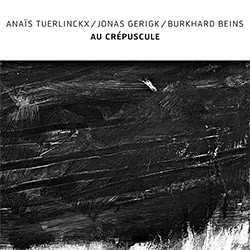
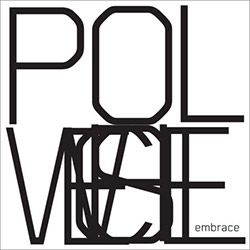

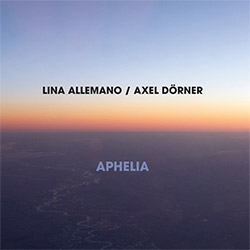


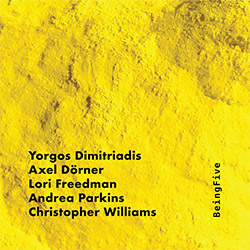
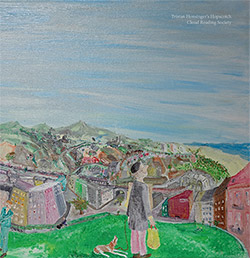
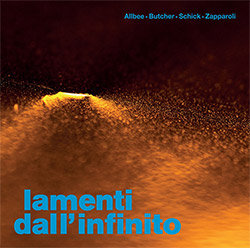

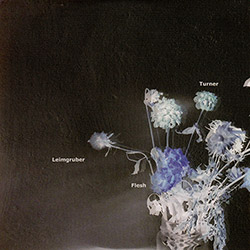
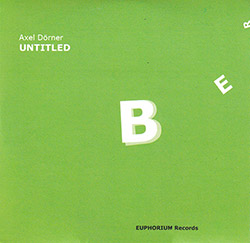

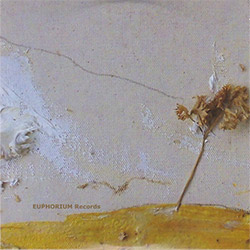
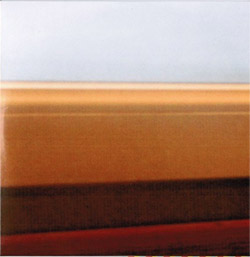
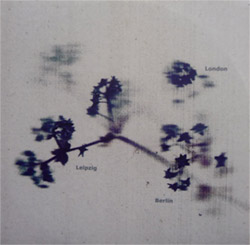

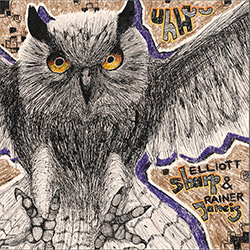
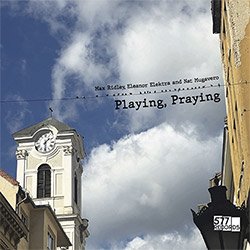

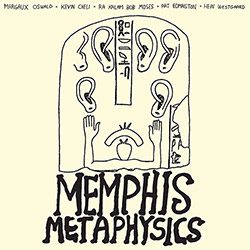
![Hoffman, Christopher: REX [VINYL]](https://www.teuthida.com/productImages/misc4/36934.jpg)
![Wrens: Half Of What You See [VINYL]](https://www.teuthida.com/productImages/misc4/37095.jpg)

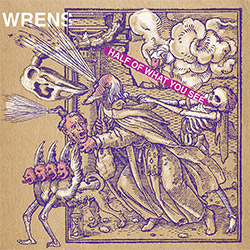
![Cartier, Pierre: Chansons de Douve [2 CDs]](https://www.teuthida.com/productImages/misc3/cartierChansonsDouve.jpg)



![Bussmann, Nicholas / Sven-Ake Johansson / Yan Jun: Tea Time [Vinyl]](https://www.teuthida.com/productImages/misc4/36991.jpg)
![Feldman, Morton / GBSR Duo w/ Taylor MacLennan: Trios [6 CD BOX SET]](https://www.teuthida.com/productImages/misc4/37020.jpg)
![Williams, Jessica: Blue Abstraction: Prepared Piano Project 1985-1987 [VINYL]](https://www.teuthida.com/productImages/misc4/37080.jpg)
![Levin, Daniel / Laurent Estoppey: Freedom From The Known [VINYL]](https://www.teuthida.com/productImages/misc4/37091.jpg)
![Fagaschinski, Kai: Aerodynamics [VINYL 2 LPs]](https://www.teuthida.com/productImages/misc4/36992.jpg)
![Allbee, Liz: Breath Vessels [VINYL]](https://www.teuthida.com/productImages/misc4/37012.jpg)
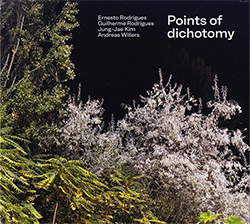
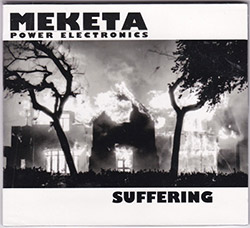


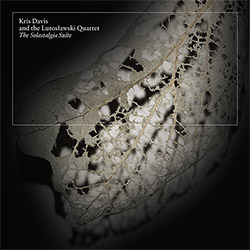
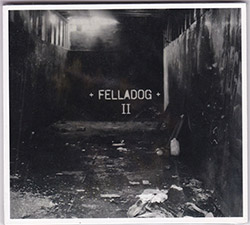


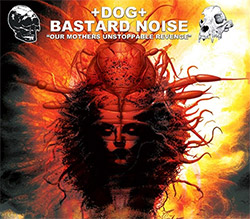



![Parker, Evan / Andrea Centazzo: Bullfighting On Ice! Live In Padova 1977 [VINYL]](https://www.teuthida.com/productImages/misc4/37064.jpg)
![Curran, Alvin / Andrea Centazzo / Evan Parker: Real Time [VINYL]](https://www.teuthida.com/productImages/misc4/37065.jpg)
![Curran, Alvin / Andrea Centazzo / Evan Parker: Real Time Two [VINYL]](https://www.teuthida.com/productImages/misc4/37066.jpg)
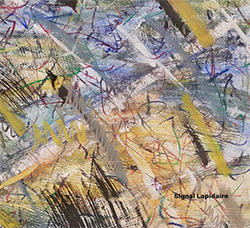

![Rodrigues, Ernesto / Jung-Jae Kim / Guilherme Rodrigues / Eric Bauer / Stephen Flinn: 5 In The Afternoon [2CDs]](https://www.teuthida.com/productImages/misc4/36957.jpg)



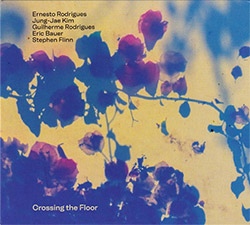





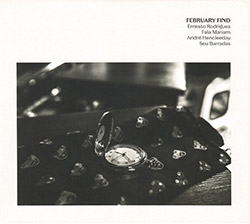
![Evans, Peter / Being & Becoming: Ars Ludricra [VINYL + DOWNLOAD]](https://www.teuthida.com/productImages/misc4/37026.jpg)

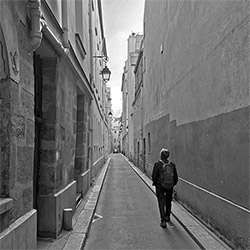
![Belorukov, Ilia / Alex Riva: Wrestling For Futility [CASSETTE w/DOWNLOAD]](https://www.teuthida.com/productImages/misc4/36994.jpg)


![Genthon, Anouck / Lionel Marchetti: Suite Blanche [2 CDs]](https://www.teuthida.com/productImages/misc4/36642.jpg)
![Toeplitz, Kasper T.: Erosions Programmees [CD + BOOKLET]](https://www.teuthida.com/productImages/misc4/36639.jpg)
![Gate, The : Almost Live [CASSETTE + MAGAZINE]](https://www.teuthida.com/productImages/misc4/36836.jpg)






![A Magic Whistle: The Solar Cell [VINYL]](https://www.teuthida.com/productImages/misc4/36658.jpg)

![McGee, Hal: Columbus Expedition [Cassette w/ Download]](https://www.teuthida.com/productImages/misc4/36650.jpg)


![Jaeger, Kassel: Fernweh [VINYL 2 LPs]](https://www.teuthida.com/productImages/misc4/36541.jpg)




![Frey, Jurg : Composer, Alone [3 CDs]](https://www.teuthida.com/productImages/misc4/36927.jpg)








![Frey, Jurg with ensemble]h[iatus: Je Laisse A La Nuit Son Poids D](https://www.teuthida.com/productImages/misc4/36988.jpg)




![Pisaro-Liu, Michael: Within (2) / Appearance (2) [2 CDs]](https://www.teuthida.com/productImages/misc4/36831.jpg)










![Musicworks Magazine: #151 Summer 25 [MAGAZINE + CD]](https://www.teuthida.com/productImages/misc4/36559.jpg)

![Brown, Dan / Dan Reynolds: Live At The Grange Hall [unauthorized][CASSETTE]](https://www.teuthida.com/productImages/misc4/36245.jpg)

![Zorn, John: The Song of Songs [CD + CD BOOK]](https://www.teuthida.com/productImages/misc4/36923.jpg)

![Coultrain: Mundus [COLORED VINYL]](https://www.teuthida.com/productImages/misc4/33056.jpg)
![Hprizm: Signs Remixed [COLORED VINYL]](https://www.teuthida.com/productImages/misc4/30635.jpg)
![Halls Of the Machine: All Tribal Dignitaries [CASSETTE w/ DOWNLOAD]](https://www.teuthida.com/productImages/misc4/36134.jpg)



![Koenjihyakkei: Live at Club Goodman [2 CDs]](https://www.teuthida.com/productImages/misc4/36111.jpg)

![Sorry For Laughing (G. Whitlow / M. Bates / Dave-Id / E. Ka-Spel): Rain Flowers [2 CDS]](https://www.teuthida.com/productImages/misc4/35985.jpg)

![Rolando, Tommaso / Andy Moor : Biscotti [CASSETTE w/ DOWNLOADS]](https://www.teuthida.com/productImages/misc4/36106.jpg)


![Electric Bird Noise / Derek Roddy: 8-10-22 [CD EP]](https://www.teuthida.com/productImages/misc4/35970.jpg)








![Elephant9 : Mythical River [VINYL]](https://www.teuthida.com/productImages/misc4/34624.jpg)



![Elephant9 with Terje Rypdal: Catching Fire [VINYL 2 LPs]](https://www.teuthida.com/productImages/misc4/35355.jpg)
![Coley, Byron: Dating Tips for Touring Bands [VINYL]](https://www.teuthida.com/productImages/misc4/17906.jpg)

![Lost Kisses: My Life is Sad & Funny [DVD]](https://www.teuthida.com/productImages/misc4/lostKissesDVD.jpg)